Plastic Oceans Viscose fibre Color Production Hydrogen Revolution Textile Machinery Sustainability Packaging Waste Versalis 08-12-2021 - Arhive
Plastic Oceans Viscose fibre Color Production Hydrogen Revolution Textile Machinery Sustainability Packaging Waste Versalis
Crude Oil Prices Trend
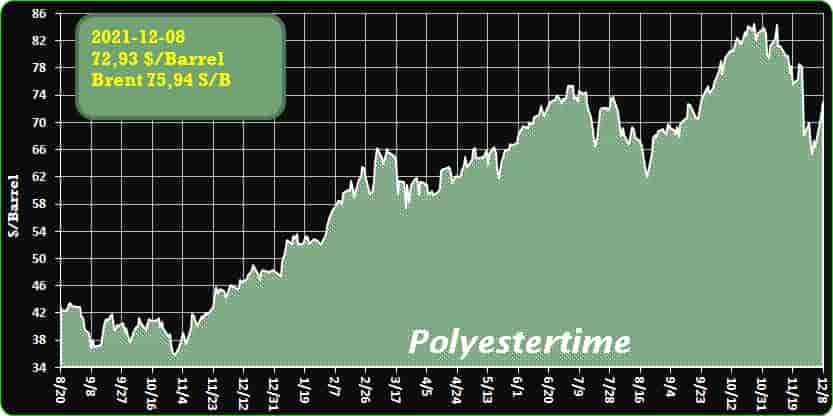
-SABIC polymer receives circular accreditation from Zero Plastic Oceans
SABIC, a Malaysia-based plastics recycling company, in collaboration with HHI, has developed certified circular polymers by using the advanced recycling of recovered mixed and used ocean-bound plastic. The companies claim this is a world first.
HHI’s model to support the production of circular polymers begins by recovering mixed and ocean-bound plastic, which is collected from ocean-feeding waterways and inland areas within a 50 km radius of the ocean. According to the company, this is mainly undertaken by its partners in Malaysia.
During the second phase, using advanced recycling, HHI will convert the plastic into pyrolysis oil; SABIC uses this oil in its production process as an alternative to traditional fossil materials to make new polymers. This aligns with HHI’s goal to convert plastics “into high-quality, manufacturable materials”.
According to HHI and SABIC, the polymers are certified under the Zero Plastic Oceans accreditation. HHI says it is the first organisation to have received the certification, confirming that the recovered plastics were actually ocean-bound.
The new polyolefins will be featured in SABIC’s TRUCIRCLE portfolio, joining other products in the portfolio that are manufactured through mechanical recycling and advanced recycling, with a focus on using bio-based feedstock and designing closed loop recycling initiatives.
Abdullah Al-Otaibi, General Manager of ETP and market solutions at SABIC, stated: “Developing an entirely circular recycling system is a huge but necessary step we need to take together and will require all players across the value chain to collaborate.

-Ampacet Doubles Color Production Capacity in Luxembourg
Ampacet, a global masterbatch leader, announces the doubling of its production capacity with the addition of new color production lines in Dudelange, Luxembourg.
The new facility in Dudelange currently houses Ampacet’s European headquarters, the Color Center of Excellence and a state-of-the-art research and development laboratory. Ampacet opened new color production lines in Dudelange, Luxembourg in 2017 and added two color production lines there in 2019.
The investment, part of Ampacet’s strategy of continuous improvement of the overall customer experience, will reduce lead times and offer additional product delivery flexibility. Recent Ampacet investments include the Ideation Center in Dudelange, a creative environment enabling customers to go from concept to creation using Ampacet’s innovative color effects and sustainable solutions technologies for a variety of applications.
“The European strategy to improve customer satisfaction is bearing fruit. Our five-year plan has been successfully completed and we are now starting the next one. This color investment is part of the overall strategy to better respond to customers’ needs with respect to both quality and service,” said Marcello Bergamo, Ampacet Europe Managing Director.
“Our customers have our highest attention and can rely on Ampacet to support development of new products focusing on innovation and sustainability. We employ environmentally safe work processes and proactive measures to protect our employees, surroundings and our communities. We continue to look for innovative ways to minimize the environmental impact of our practices and products,” he added.
Plastic Oceans Viscose fibre Color Production Hydrogen Revolution Textile Machinery Sustainability Packaging Waste Versalis
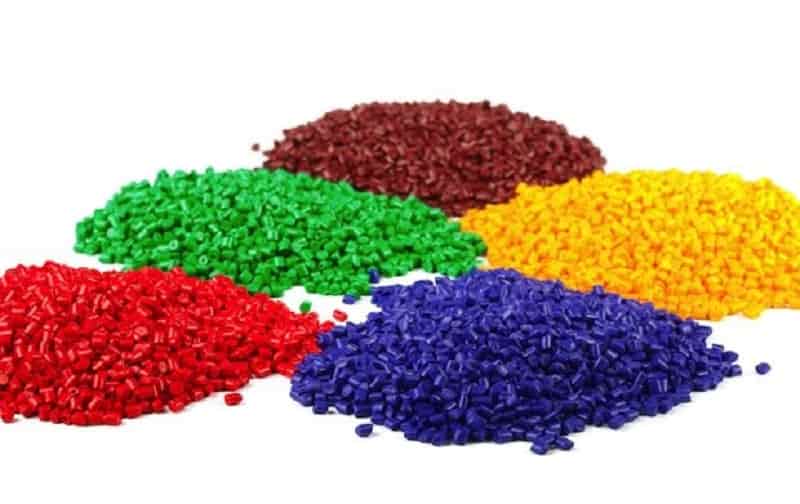
-Viscose fibre producer Sateri gains Oeko-Tex STeP certification
Viscose fibre producer Sateri claims to have become the first lyocell producer in China to be certified to the standards set by independent Swiss-based certification organisation Oeko-Tex.
Sateri says its lyocell facility in Rizhao, Shandong Province, has been awarded the Sustainable Textile Production (STeP) certification for responsible production.
It claims the site has also obtained the highest-ranking of level three in the certification assessment scoring for exemplary implementation of best manufacturing practices.
Together with its earlier achievement of the Standard 100 by Oeko-Tex certification that
confirms its lyocell fibre is free from any harmful substances and complies with European standards, Sateri’s lyocell products are qualified to carry the Made in Green by Oeko-Tex product label. This label not only attests to Sateri’s lyocell fibre as safe and manufactured in an environmentally friendly, socially responsible and safe facility, but also the group’s commitment to higher levels of transparency and accountability through the product traceability feature of the label, Sateri says.
The STeP by Oeko-Tex certification comprises three levels describing the extent to which a company has achieved sustainable production and working conditions of factories in the textile industry. The areas of assessment include chemicals management, environmental performance, environmental management, social responsibility, quality management, as well as occupational health and safety.
Allen Zhang, president of Sateri, notes: ” In addition to having all our (five) viscose mills Oeko-Tex STeP certified as well as compliant with the emission limits set out in the European Union Best Available Techniques Reference Document (EU-BAT BREF) on polymers, we now have our first lyocell facility awarded with this certification. This not only reflects Sateri’s relentless pursuit for responsible manufacturing excellence but marks an important step towards sustainable value chain management. Sateri will continue to work with upstream and downstream partners to realise the sustainable development of our entire industrial chain.”
Sateri’s lyocell fibre factory in Rizhao commenced operation in May 2020, with an annual output of 20,000 tonnes. The same site houses a 5,000-tonne lyocell pilot production line dedicated for the development of lyocell application technology.
In March 2021, the group announced plans to expand its lyocell annual production capacity in China up to 500,000 tonnes by 2025.
A natural and biodegradable fibre, Sateri’s lyocell is made from wood pulp sourced from certified and sustainable plantations. It is manufactured using closed-loop technology, requiring minimal chemical input during the production process, and utilising an organic solvent that can be almost fully (99.7%) recovered and recycled.
Plastic Oceans Viscose fibre Color Production Hydrogen Revolution Textile Machinery Sustainability Packaging Waste Versalis
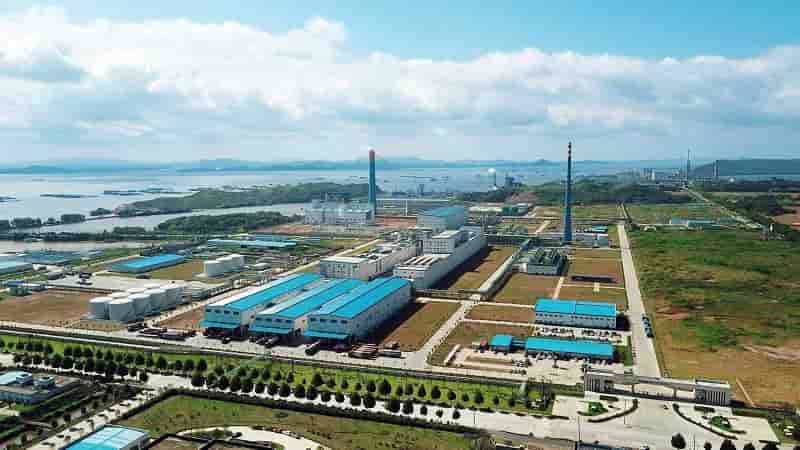
-Clariant developing next-gen ammonia cracking catalysts to support the global hydrogen revolution
- 14-Mio-€-funded AmmoRef project aims to develop ammonia cracking catalysts and processes capable of industrial-scale hydrogen transport
- Hydrogen to be converted to ammonia to facilitate transportation then reconverted at the point of use
- Clariant is committed to innovations for enabling the energy transition in the new hydrogen economy by developing enhanced catalysts for various sustainable technologies
Clariant Catalysts’ role in the so-called “green hydrogen revolution” continues to grow. The company is now participating in Germany’s prestigious TransHyDE project AmmoRef, which is tasked to develop process technologies and catalysts for ammonia cracking to facilitate future hydrogen transport, also for large distances. With €14 million in funding from the German Federal Ministry of Education and Research (BMBF), AmmoRef is part of the overarching 135-million-euro TransHyDE project, which aims to revolutionize the nation’s hydrogen transport infrastructure in preparation for a sweeping energy transition. TransHyDE is one of three hydrogen flagship projects aiming to prepare Germany’s entry into a hydrogen economy.
Marvin Estenfelder, Head of R&D at Clariant Catalysts, commented, “We are honored to have joined forces with some of the world’s most talented scientists in supporting Germany’s and the global transformation into a clean hydrogen economy. Clariant has been involved in R&D and cross-industry collaborations in this field for many years, and we have already developed numerous catalysts for use in innovative hydrogen applications. We are confident that together we will make it possible to recover pure hydrogen from ammonia in the scales required for efficient and safe mass transportation of hydrogen.”
Plastic Oceans Viscose fibre Color Production Hydrogen Revolution Textile Machinery Sustainability Packaging Waste Versalis
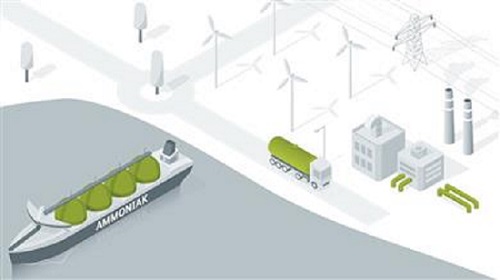
-Italian textile machinery manufacturers expect to complete 2021 with increasing orders
With a rise in orders in third quarter, Italian textile machinery manufacturers anticipate a rise in the last quarter of the year.
and took an eight months training on interactive media at the University of Technology in Lithuania – Kaunas. Cengiarslan then successfully completed the Faculty of Business Administration in Eskişehir Anadolu University. He started to work as a reporter in Referans Gazetesi after completing his internship at CNNTURK. 2 years later he established his own media for the textile industry under the Textilegence brand. Currently, Fatih has been managing Textilegence.com, Printing3D and NEFA PR Agency for 6 years.
The index of orders intake for Italian textile machines compiled by ACIMIT, the umbrella organization of Italian textile machinery manufacturers, rose by 66 percent in the July-September 2021 period compared to the same period of the previous year, and the value of the index stood at 119.8 points (basis 2015=100). This growth concerned both Italian and foreign markets, with a 130 percent increase in domestic orders and a 54 percent increase in foreign orders compared to the same period of 2020. However, the order intake index dropped 17 percent compared to the previous quarter this year, mainly due to the summer break and a demand for machinery that has stabilized over the last few months.
Italian textile machinery manufacturers respond quickly to new market conditions
In his statement on the order figures for the July-September 2021 period, ACIMIT President Alessandro Zucchi explained that the numbers for new orders remain positive, in spite of a slight decline compared to the months prior to the summer period. Zucchi said; “This proves that Italian companies have been capable of responding quickly to new market conditions, as has often happened in other historical periods. The ability to adapt, coupled with remarkable flexibility, are part of our DNA as Italian businesses, not just in our specific sector”.Plastic Oceans Viscose fibre Color Production Hydrogen Revolution Textile Machinery Sustainability Packaging Waste Versalis
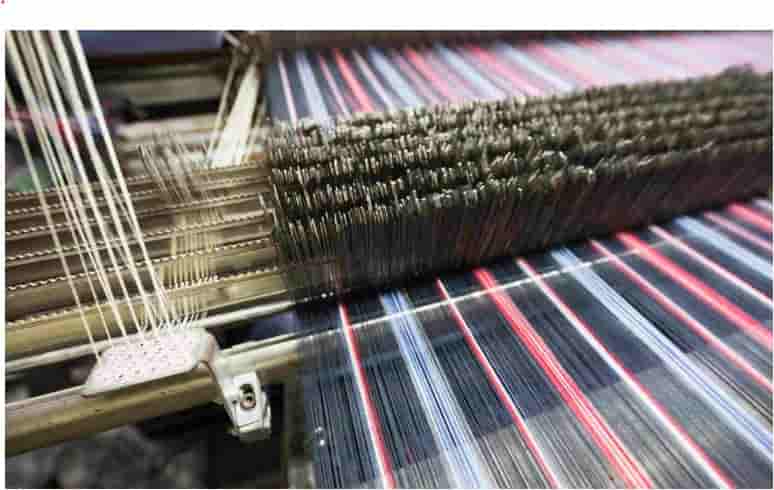
-Covestro and Tekmar Group collaboration improves sustainability in offshore industries
The growing offshore wind farm market requires a sustainable value chain capable of delivering robust subsea infrastructure whilst reducing the industries environmental impact. To achieve this, the offshore industry is urgently seeking for renewable materials matching their high-performance requirements from the supply chain.
Covestro and Tekmar Group collaboration improves sustainability in offshore industriesCovestro
Covestro and Tekmar Group have embraced this challenge and are collaborating to develop more sustainable subsea products by leveraging each other’s expertise in their respective fields.
Covestro Elastomers develops cast elastomer systems to provide solutions for the offshore energy market. Tekmar is a leading producer of polyurethane-based cable protection systems for the global offshore energy markets.
A key component of the cable protection system is the bend restrictor, which along with the rest of the system, is designed to protect cables in the ocean for decades. So, why not propose an alternative PU elastomer system for more sustainable casting of these products? One of the major challenges is the reconciliation of sustainability and technical performance, without any compromise on quality. To solve this, Covestro has developed a new polyurethane elastomer system based on its CO2 Technology, now called Triturn, which positively contributes to reducing the products´ carbon footprint.
Plastic Oceans Viscose fibre Color Production Hydrogen Revolution Textile Machinery Sustainability Packaging Waste Versalis
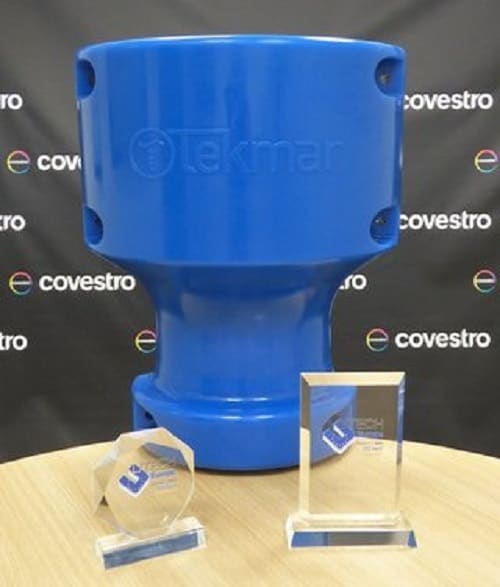
-A Circular Pathway for Packaging Waste
Consortium For Waste Circularity plan for continuous, sustainable packaging circularity is anchored to regenerative gasification.
Sustainability is dominating discussions in the packaging industry to the point that packaging success and sustainability are now inseparable.
Brands, printers, packaging suppliers, and other stakeholders need to have a workable sustainability strategy. A framework and some lessons to create or improve a sustainability strategy is shared in this gallery slideshow drawn from a 90-minute webinar presented by The Consortium For Waste Circularity (CWC).
The proposed solution is a straightforward, proven all-in-one solution that encompasses all packaging materials, regenerative gasification. This technology was formerly known as plasma gasification, which PlasticsToday first reported on in August 2019 (Is plasma gasification the solution for plastics and all waste?) and recently in April of this year, Packaging Industry Must Claim Waste-Derived ‘Recycled Content’ Syngas.
Plastic Oceans Viscose fibre Color Production Hydrogen Revolution Textile Machinery Sustainability Packaging Waste Versalis
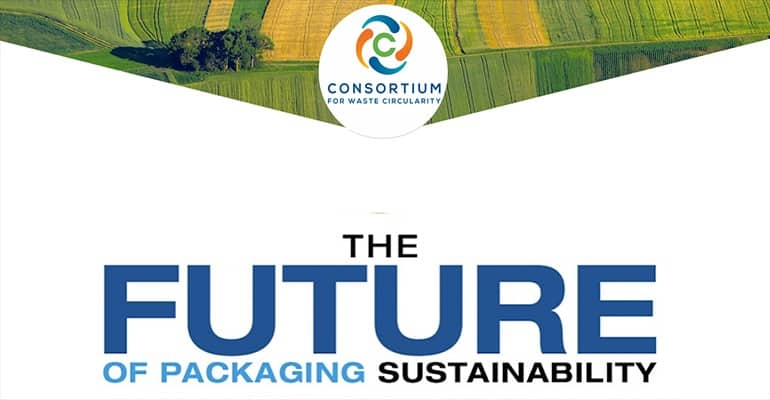
-Versalis to license technology to Supreme Petrochem ABS unit in India
Versalis, Eni’s chemical company, has agreed to license the continuous mass technology for a 70 KTY ABS unit to Supreme Petrochem Ltd. a leading Indian polystyrene (PS) and expandable polystyrene (EPS) producer, according to Hydrocarbonprocessing.
The unit will be built in the Amdoshi – Wangani, District Raigad, in Maharashtra state, India.
This state-of-the-art technology will produce styrenic polymers with a low carbon footprint owing to reduced emissions and energy consumption. Market applications of the technology include the automotive industry, household appliances, the electronics sector, medical appliances and furniture.
The license agreement confirms the primary role of Versalis in styrenics and strengthens its position in the Asian market, an area which is undergoing a strong expansion in the petrochemical field and is increasingly focused on selecting more sustainable technologies with a low environmental impact.
Versalis will be supported by Eurotecnica Contractors and Engineers SpA, with which the company has recently signed a cooperation agreement within the styrenics business. Eurotecnica, which will support Versalis in supplying the basic engineering design package, is an Italian company founded in 1962 and part of the Proman Group. The company specializes in providing engineering services relevant to proprietary technologies with established leadership in the Asian market, in melamine technology.
Plastic Oceans Viscose fibre Color Production Hydrogen Revolution Textile Machinery Sustainability Packaging Waste Versalis

Plastic Oceans Viscose fibre Color Production Hydrogen Revolution Textile Machinery Sustainability Packaging Waste Versalis
